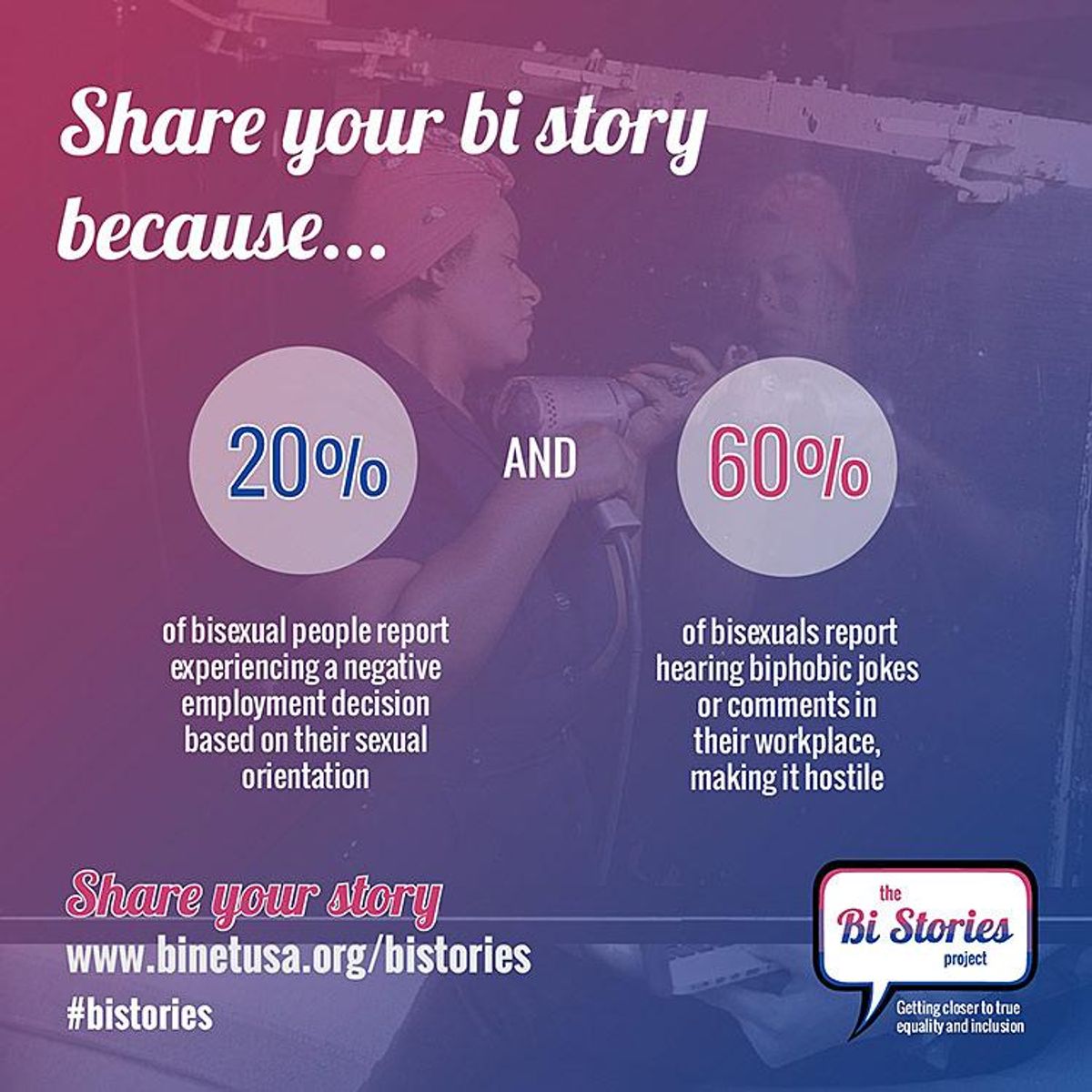As a kid, one of my favorite things to do was to make my parents and grandparents tell stories -- stories about their childhoods, about family members who had passed on long before I was born, about life during times like the Great Depression and the Civil Rights Movement. It's no wonder I went on to become a historian.
But in my Southern Baptist family, the few stories about people like me were shrouded in euphemisms or shame -- the "spinster" aunt who lived with a female "roommate" for much of her life, the estranged cousin who moved away and was probably dying of AIDS. These stories made me feel simultaneously comforted that queer people existed in my family, and ashamed of something I didn't yet have the words to describe.
Eventually I found that the word to describe myself was "bisexual." I came out, found the LGBTQ community, and became an activist. But still stories about other bisexual people were few and far between. Bisexual people were barely visible in LGBTQ spaces, and prominent bi celebrities were either closeted or assumed to be gay. Our stories in popular culture were stereotypes and cliches. So I became drawn to the stories of other people and groups who had overcome stigma and adversity, searching for echoes of my own struggle in hopes of one day writing my own story as a bisexual woman.
This weekend, BiNet USA launches the Bi Stories project with a panel at Comic-Con in San Diego, a project that invites bisexual community members (including those who identify with labels like pansexual, fluid, queer, polysexual, and other terms that denote attraction to people of more than one gender) to share our stories. The project focuses specifically on bisexual people's experiences with discrimination, and the journeys of our family members toward embracing our identities.
I'm excited to share some of my own stories as part of the BiNet USA Bi Stories project, particularly about how members of my Southern Baptist family have come to embrace my bisexual identity and have even become allies in their own right. My parents, both of whom are Baptist ministers, attended their local Pride festival this year to support me, and my cousin now pastors an affirming Baptist church in North Carolina and has become a leading voice in his more conservative denomination for embracing LGBTQ people.
As the larger LGBTQ community continues to gain visibility and see their stories represented in every arena from television to political campaigns, bisexual people's stories still aren't being told. We are still too often rendered invisible in LGBTQ spaces and represented in stereotypes that suggest our identities aren't real or valid.
It is no surprise then, that bisexual people suffer major disparities when compared to our lesbian, gay, and non-LGBTQ peers -- we are sicker, poorer, and more prone to mental illness and suicidality. Bisexual youth are dying by suicide at alarming rates and have lower levels of social support than their gay and lesbian peers.
Bisexual youth and adults need to see stories of people like us. In the face of these challenges, they need to see the incredible diversity of the bisexual community, hear of how other bisexual people have overcome biphobia and discrimination, and see how our families have come to embrace and even celebrate us.
We need to be empowered to tell our stories on our own terms, and the BiNet USA Bi Stories project gives us a place to do just that. The panel at Comic-Con this weekend, Sunday, July 24 at 3 p.m., "Bisexuality and Beyond: New Frontiers in Popular Culture," sponsored by the BiNet Bi Stories Project and Prism Comics will look at how bi stories are changing and becoming more prominent in popular culture, and we hope these stories will inspire others to share theirs.
Share your stories of experiencing discrimination as a bisexual person at binetusa.org/bistories and follow along with the panel on social media using the hashtag #bistories.
BETH SHEROUSE is a board member of BiNet USA.













































































